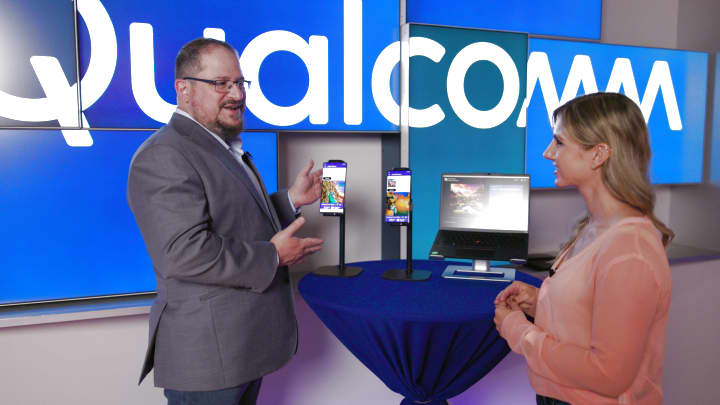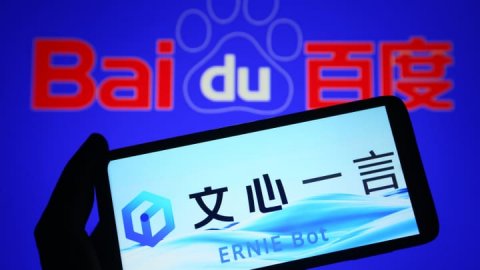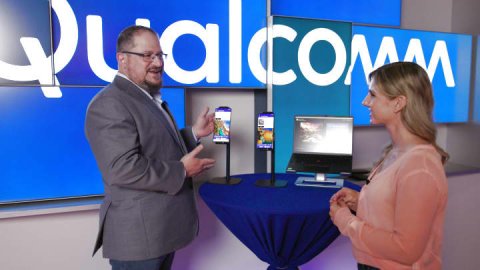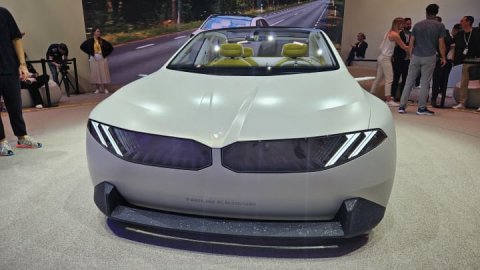
Qualcomm told CNBC the semiconductor side of its business is growing, while licensing has become a smaller portion of revenue. The question remains whether that chip business can continue to grow without Apple.
Apple has indeed made its own for its iPhones and iPads since 2010. When its two-year legal battle with Qualcomm came to a close in 2019, in a move to develop its own cellular modem, too.
"Apple's made it very clear that they want to get rid of Qualcomm entirely and go to their own modem, [but it's] unclear if they can pull that off [or] when they will be able to do it," Goldberg said. "It's very different than everything else Apple silicon has built."
Apple isn't the only one turning away from Qualcomm silicon. Chinese smartphone maker currently uses Qualcomm's 4G chips in all its high-end phones. But it will soon switch to 5G, because of on U.S. companies providing advanced tech to China.
Meanwhile, smartphones as a whole are facing an industrywide downturn. Shipments are on track to hit their .
In August, Qualcomm reported weaker-than-anticipated revenue for its third fiscal quarter. It's after in June. The company currently employs around 51,000 people.
"The macroeconomics, I think, is not unique to Qualcomm," Amon said. "A lot of companies have been rightsizing their business, and we're no different than the rest of our peers."
With uncertainty in the smartphone market, Qualcomm has shifted much of its focus to chips for other smart devices . Chief among them is cars, which Amon called the "brightest spot in our Qualcomm differentiation strategy."
Qualcomm calls its package of hardware chips, sensors and software the Snapdragon Digital Chassis. Last week, it demonstrated potential use cases for how this system can enable hands-free assistance from large language models and generative AI. Examples include finding recipes and adding ingredients to a shopping list, or generating a virtual birthday card and sending it to family members.
Currently, Qualcomm's digital chassis powers cloud-connected video and audio, advanced driver assistance systems and more. It's in cars like the new and models from Mercedes-Benz, BMW, Stellantis, Hyundai, JLR and Sony Honda Mobility.
"That's something that's taking time, but these design wins are indicative of a future," Newman said. "They do create more predictability in revenue. And the company is seeing more and more of the world's largest automakers select its technology for at least part of their ... connected automotive stack."
Qualcomm is also diversifying into the connectivity of things, like virtual or augmented reality headsets.
"We're the partner of choice of ," Amon said. "We've been working with Microsoft. We've been working with and Samsung. ... It's hard to time it when everybody's going to buy their glasses, but we know that that's going to be the next computing platform for sure."
Qualcomm is also trying to break into the competitive world of central processing units for PCs, taking on server giants like Intel and . In 2021, Qualcomm — although in 2022, saying it only licensed its architecture to Nuvia, not its new owner. Still, Qualcomm says its Arm-based processors will be in PCs by 2024.
"I think with AI and generative AI, if that becomes a feature that consumers really want in their laptops, then Qualcomm actually has a really good solution," Goldberg said. "And so maybe this is the once-in-a-lifetime opportunity for Qualcomm to break into the PC market."
With Nvidia's incredible performance since ChatGPT came out in November, Qualcomm's big push toward AI is no surprise, but it's also not new. Amon told CNBC that Qualcomm has been working on AI capabilities for about a decade.
"We talk often about this hybrid AI," Amon said. "You're going to run things on the device because sometimes the device has unique things in real time from you, or you can give the cloud a head start. But at the end of the day, I think the power of combining the cloud with the device is very big."
In May, announced plans for that will run on Qualcomm's Snapdragon processors. And in July, its ChatGPT competitor, Llama 2, will run on Qualcomm chips on phones and PCs in 2024.
"The company's biggest opportunity is to figure out what are those AI applications, whether it's tied to augmented reality, whether it's tied to intelligent vehicles, whether it's tied to next-generation gaming, whether it's tied to productivity tools and apps — its ability to put chipsets into these devices that can handle and process those different workloads and of course, being able to monetize that," Newman said.
For now, the business of on-device AI remains unproven. Large language models currently run off server farms filled with cloud GPUs that can handle their huge computational and data needs.
"Is Qualcomm going to be able to upsell a premium for each one of its licensees and each one of its chipsets for having these advanced AI capabilities?" Newman asked. "That particular answer will be the biggest determinant in just how successful Qualcomm can be in AI."




